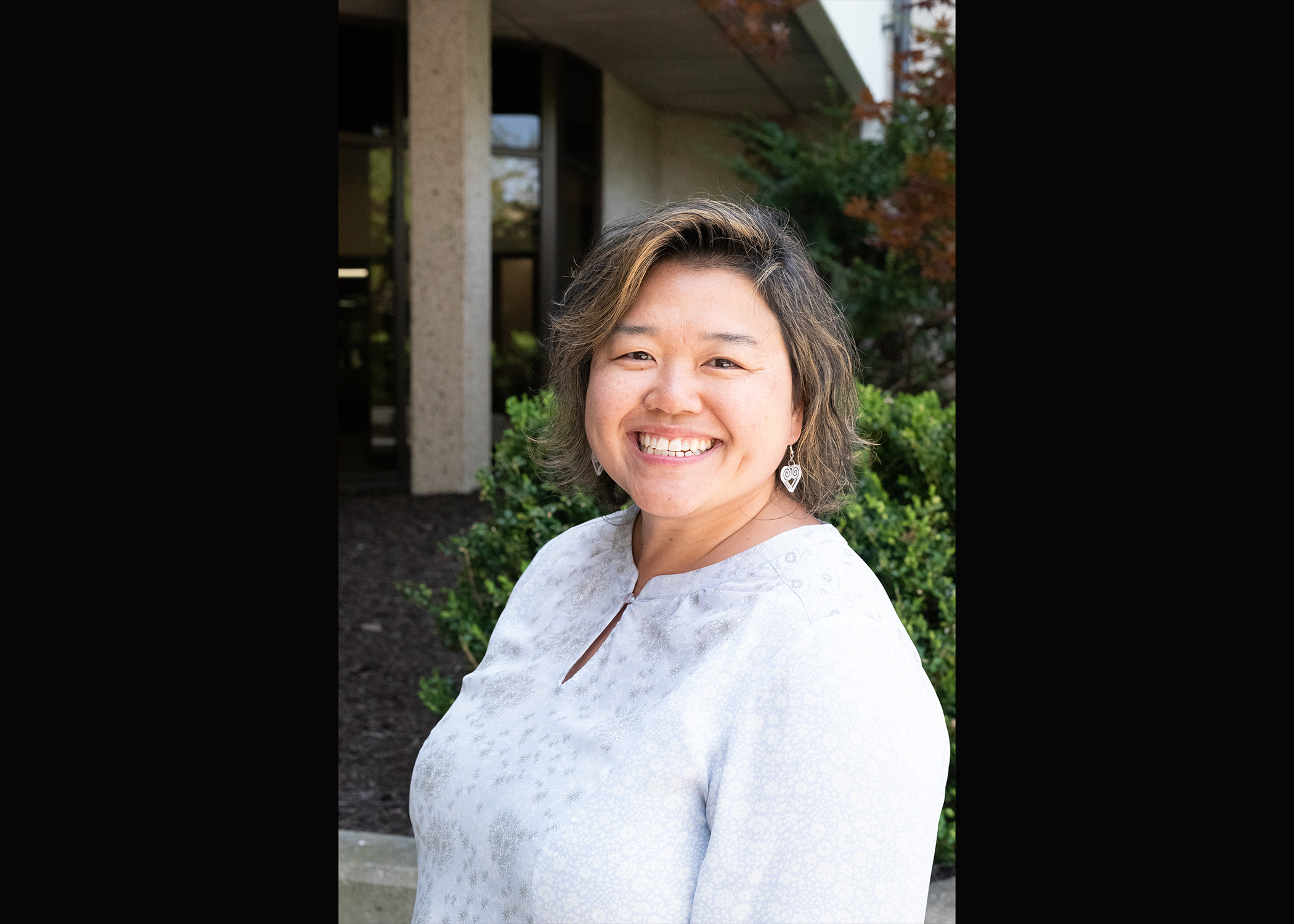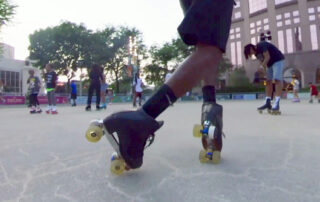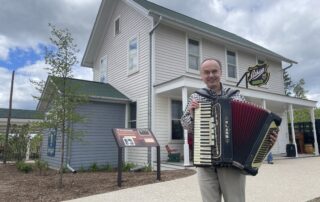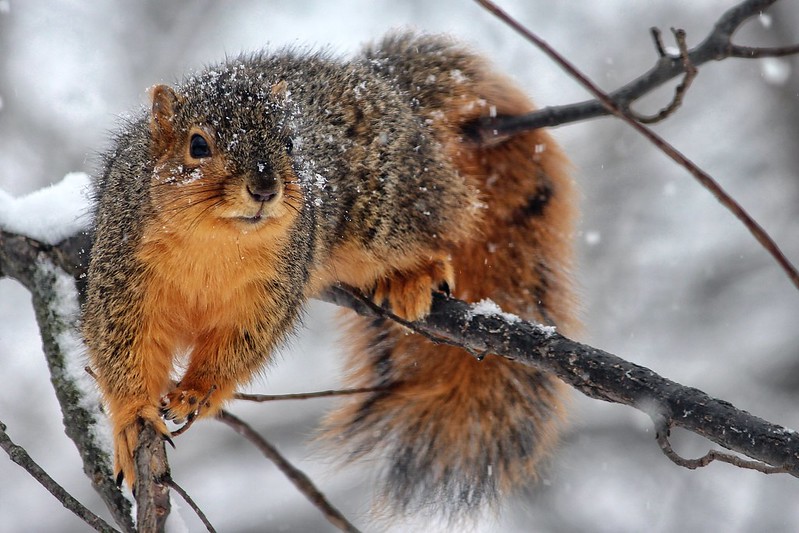Home means different things to different people. Home can be the house you grew up in, a quiet spot in the woods, or right beside your favorite person.
For Mai Lo Lee of Appleton, defining her home is complicated. She shares her story as part of the “Home Is Here” project, which amplifies the voices of the growing number of Black, Asian, Native American and Hispanic residents who call northeastern Wisconsin home. The project is part of the NEW News Lab – a local news collaboration in northeastern Wisconsin made up of six news organizations.
==
Home is a hard concept to me.
I was born in a refugee camp.
I was in the Ban Vinai Holding Center.
In northeastern Thailand.
So, home, to me, has never been a physical placement.
Home has never been an address or location.
The awareness of what home is has always been associated with a feeling of safety.
There are a few things that remind me of home.
The first is the smell of a traditional Hmong black chicken boiled with Hmong tshuaj such as lemongrass, Joe Pye weed, Okinawa spinach and mugwort, among the many other Hmong traditional herbs used in this herb bundle.
As a young child, this earthy smell greeted me many early mornings and comforted me many late evenings. My immigrant Hmong parents had taken refuge from the American War in Vietnam and eventually made Central Wisconsin their new home. One of their chosen professions was ginseng farming; therefore, I was a ginseng farmer.
During the early summer mornings, I would be greeted with this smell of boiled chicken and herbs for breakfast, because — according to my parents — farming is real work and I needed real food. My family’s WIC-approved cereal was only good for learning at school.
At the age of 7, I was manually removing large rocks from untilled acres of farmland in preparation of the land being tractor-tilled for ginseng crops. My dad encouraged all his 10 children to remove large and small rocks because the land would be home for our ginseng plants for four to five years. Once the ginseng plants were seeded and emerged from their hay beds, I worked every day. I would pull wild violets, goosegrass, creeping Charlie and crabgrass weeds underneath the aluminum-mesh net that created shade for the ginseng plants.
After a long day of farming, most evenings my mom would add more water, salt and black pepper and reheat the boiled chicken for dinner. I always felt safe eating this dish. I felt safe adding more black pepper or asking for red chilis to spice up my dish. Still, one of my favorite dishes is home-cooked white jasmine rice with hot black chicken boiled with tshuaj.
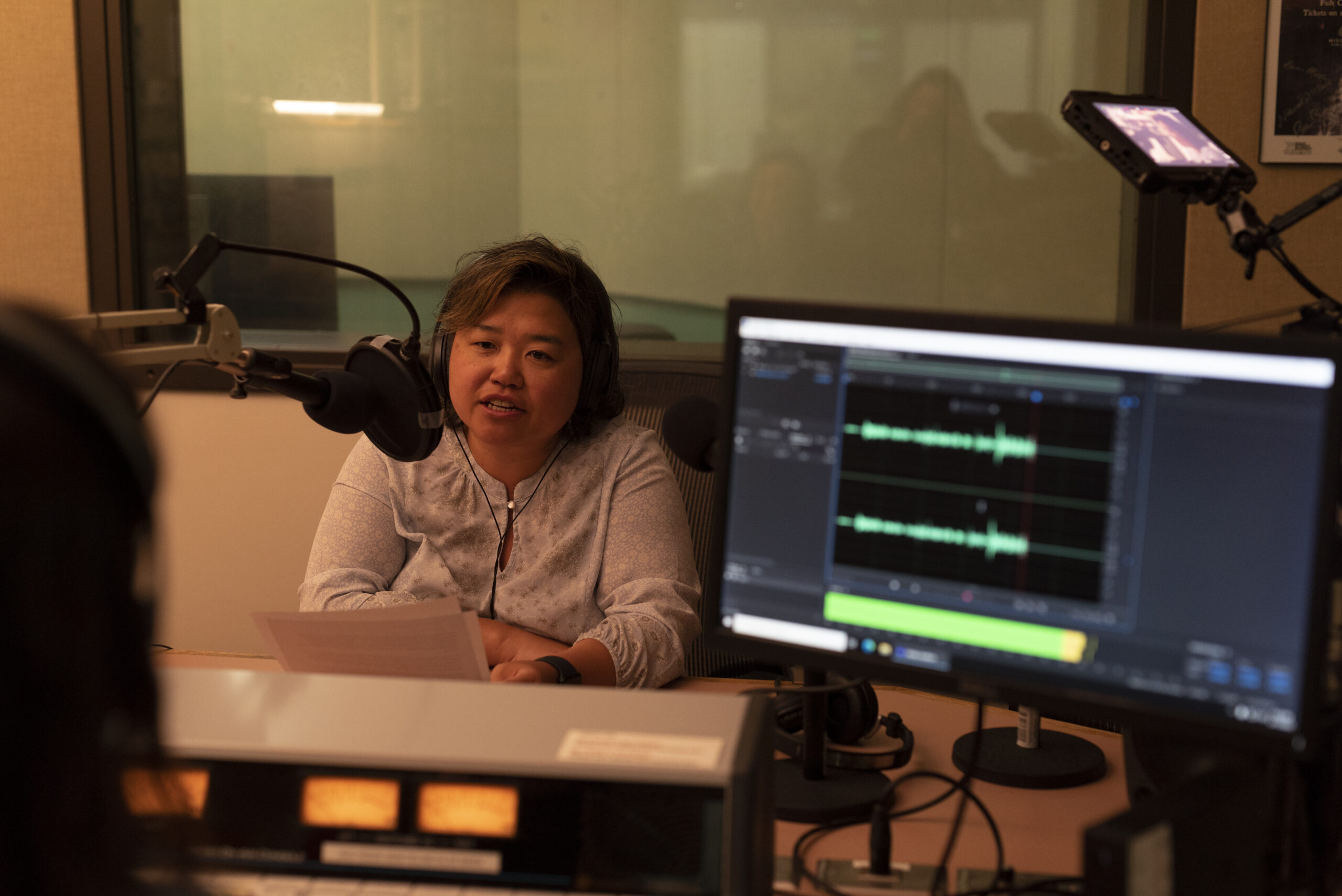
Mai Lo Lee records her story for the “Home Is Here” project in Wisconsin Public Radio’s Green Bay studios on May 17, 2023. (Photo by Laura Henderson)
There’s another thing that makes me feel instantly at home…and that’s when I would hear Wisconsin Public Radio.
The early dark morning rides to the ginseng fields were often long. The quiet morning car ride was often filled with the conversations of WPR as my sleepy self mentally woke up and prepared for the duties of ginseng. I always liked listening because I never feared having to speak back. As a dual language child who had a stammer and stutter, conversations scared me. Conversations scared me because I was unsure of how much of myself I could share, if my words would come out right if I did want to share, and lastly, would I matter? Wisconsin Public Radio allowed me to be safe — to be a part of the conversation — by listening and learning.
Every radio in the house, ginseng field and car was defaulted to Wisconsin Public Radio, in fear of missing the Saturday Hmong program, Hmong Public Radio. The Hmong program was special to me because I was able to hear Hmong conversations by Hmong people. This was something I did not see on television or at school.
WPR was there for my parents also, especially my mom. She listened to the station because she could not read or write English well. She would take her newly heard words and conversation patterns and couple them with her evening English language show, “Wheel of Fortune.” She enjoyed Pat Sajak’s interviews because it showed her how to greet and welcome guests in English. She enjoyed learning how words were spelled on “Wheel of Fortune” and the excitement of the players who won Disney trips and thousands of dollars.
Home is still a hard concept to me.
It may be because I was born in a refugee camp.
It may be because I was raised in Central Wisconsin, growing up along the sides of shaded ginseng crops.
Home, to me, has never been a physical placement.
Home has never been a physical address or location.
Home is where I am safe.
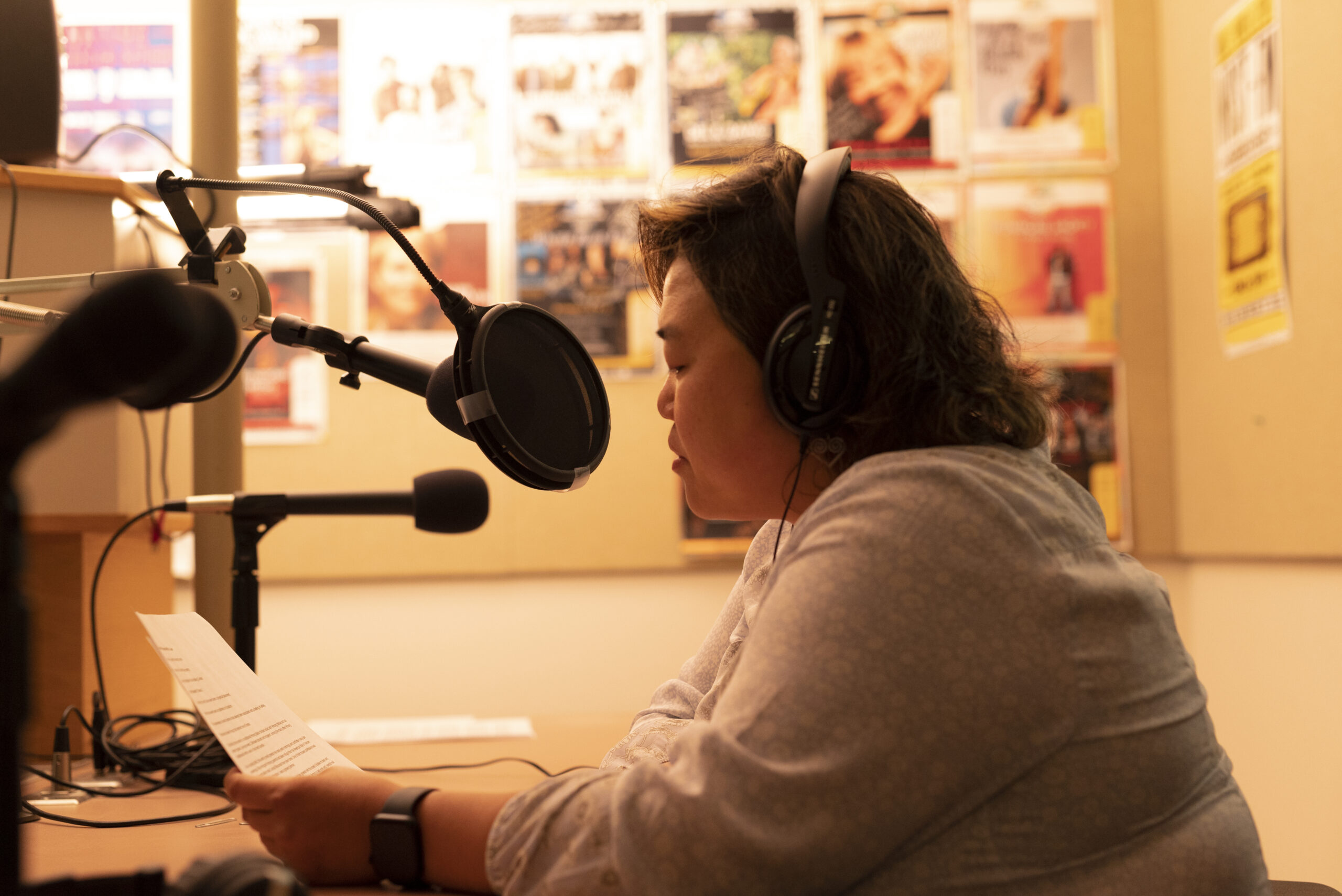
For Mai Lo Lee of Appleton, Wisconsin, the concept of home is wherever she feels safe. (Photo by Laura Henderson)
Mai Lo Lee of Appleton, Wisconsin is a Culture and Engagement Strategist within the Bureau of Operations in the Wisconsin Department of Health Services’ Division of Public Health.
==
MUSIC: Crescent Dai plays the Hulusi flute, an instrument that Mai Lo Lee loves.
